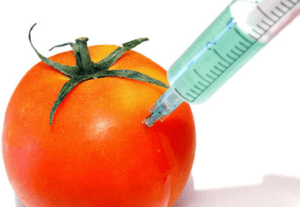GMOs pose a danger to Ghana’s food system – CCCFS
 The Centre for Climate Change and Food Security (CCCFS) has reiterated its opposition to what it describes as Ghana’s hasty adoption of Genetically Modified Organisms (GMOs).
The Centre for Climate Change and Food Security (CCCFS) has reiterated its opposition to what it describes as Ghana’s hasty adoption of Genetically Modified Organisms (GMOs).
This follows the release of the Pod Borer-Resistant (PBR) cowpea, the first genetically modified crop to be developed in Ghana for commercial cultivation by the Savanna Agricultural Research Institute (SARI).
The National Biosafety Authority (NBA) in 2022 approved the environmental release of the first GM commodity (PBR cowpea) following an application by SARI – a move fiercely criticised by CCCFS.
Despite the stern opposition to the approval by NBA back in 2022, SARI recently released the PBR cowpea for commercial cultivation.
“We are appalled by the recent launching of GM cowpea purporting to have the ability to resist pod-borers due to the presence of a gene from Bacillus which produces CRY1A toxin,” a statement issued by CCCFS read.
The statement signed by its Director of Research, Sulemana Issifu and copied to the Ghana News Agency (GNA) in Kumasi, said it found the presence of the toxin in question to be abnormally high compared to other transgenic crops after reviewing the application by SARI.
“While we note the lack of evidence for the toxicity of the toxin to humans, it remains a source of worry to us since the current data on the matter is inconclusive,” the statement further read.
According to the statement, the Centre had taken note of the lack of data on the effect of the crop on beneficial soil microorganisms and other important pollinators, and that if the crop in question has an effect on such organisms, then the crop is likely to alter the productivity of soils on which they planted – making the survival of succeeding crops impossible.
These and many more, according to the statement, make it imperative for farmers to resist the unholy intrusion of Ghana’s agro-ecosystem by GMOs because they remain a tool of corporate control of food production.
“We call on farmers, Ghanaians, and CSOs to reject GMOs,” the statement appealed and urged the Government to resolve the myriads of agricultural problems such as bad roads, lack of postharvest storage facilities, uneven food distribution chain, lack of access to loans that cannot be solved by GMOs.
Source: GNA
